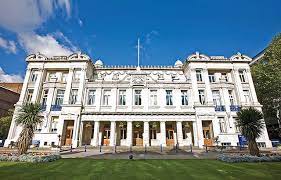Queen Mary University of London: Preventing Plastic Pollution project helps Team GB athletes to kick plastics out of sport
The Preventing Plastic Pollution project aims to understand the sources and impacts of plastic pollution, and to propose sustainable solutions to reduce it.
By examining how the plastic arrives from source to sea, the project will identify and target hotspots for plastic and embed behaviour change in local communities and businesses.
An Olympic effort
The Environment Agency, one of the 18 partner organisations involved in the project, have provided a flyer for Team GB athletes made from seed paper, which has been included in their official Tokyo 2020 kit bags.
It signposts athletes to the Big Plastic Pledge website – a global campaign founded by Olympic sailing champion Hannah Mills that aims to unite athletes and fans from around the world to help tackle the issue of plastic pollution and eradicate single-use plastic in sport.
The flyer is the first of a number of initiatives with Team GB having also provided learning and teaching resources for its family and school education programme Travel to Tokyo – a free programme of virtual activities for children aged 5 to 11.
Preventing plastic pollution
Queen Mary is leading the Preventing Plastic Pollution project, which received €14m funding, approved by the Interreg France (Channel) England Programme, which has committed €9.9m in funding through the European Regional Development Fund. The project will work across seven pilot sites: Brest Harbour, Bay of Douarnenez, Bay of Veys, Poole Harbour, and the Medway, Tamar, and Great Ouse estuaries.
In addition to the Olympics, the Preventing Plastic Pollution project was also represented at the start of the Tour de France.
Dr Iwan Jones, Head of the River Communities Group at Queen Mary said: “This project aims to understand the sources and impacts of plastic pollution and to reduce this by changing attitudes towards the use of plastics in all aspects of our lives. It demonstrates the real-world impact of Queen Mary’s research and will help to identify effective solutions and alternatives that will benefit both the environment, and future generations.”

